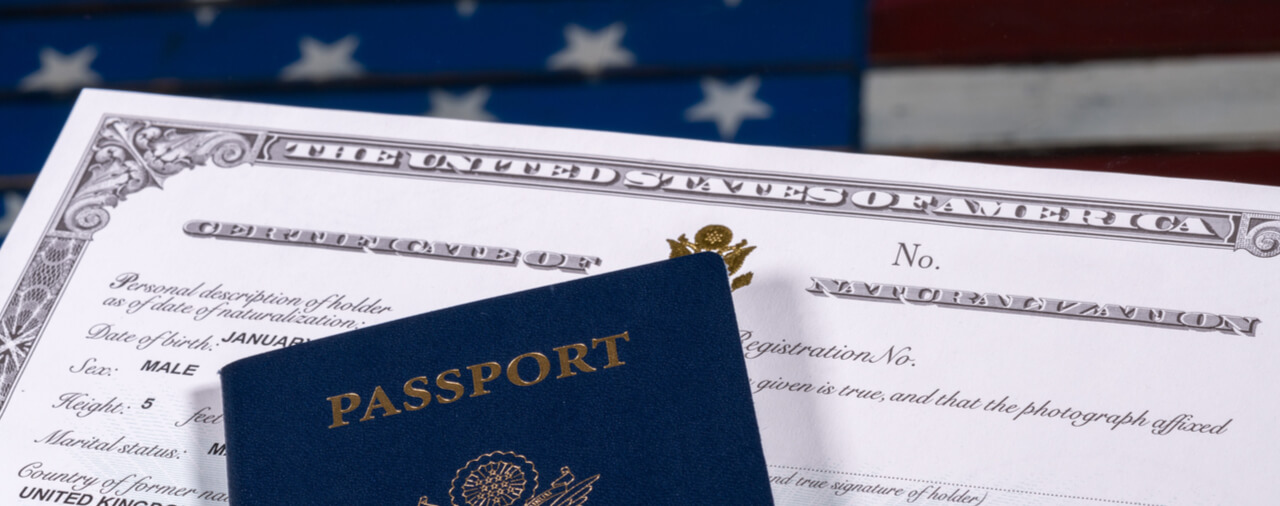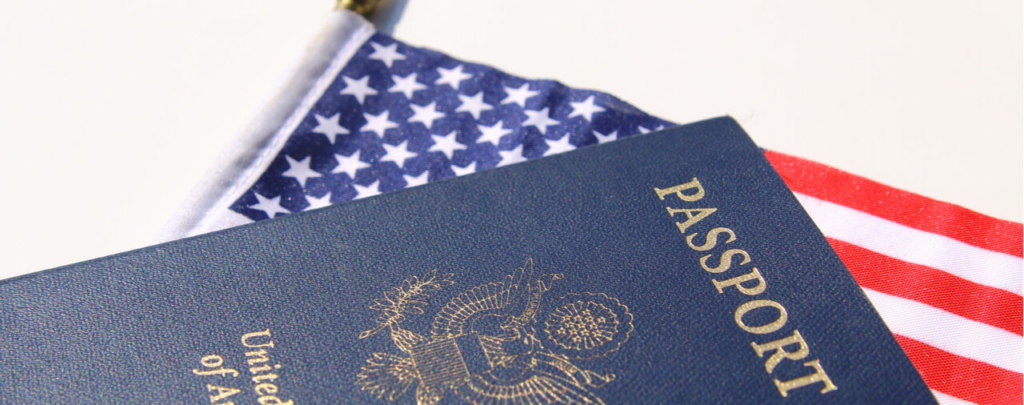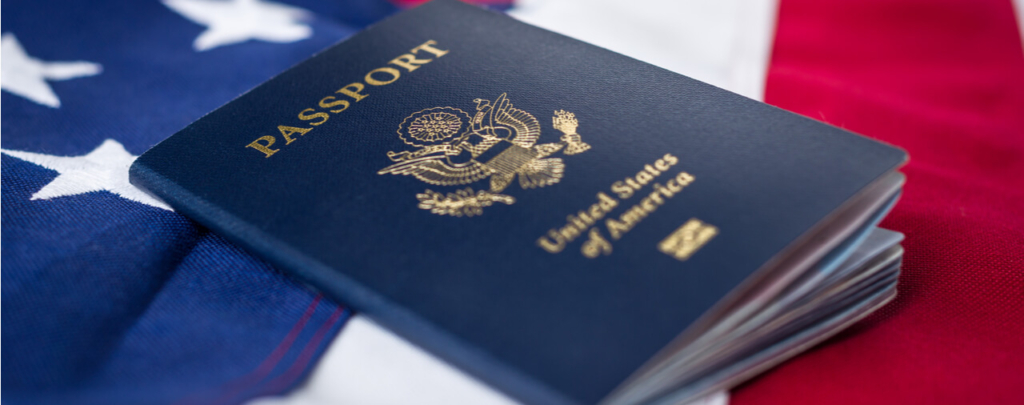- Introduction: Matter of Zhang, 27 I&N Dec. 569 (BIA 2019)
- Pertinent Factual and Procedural History: 27 I&N Dec. 569, 569-70
- Board Rejects Argument that Respondent Was U.S. Citizen: 27 I&N Dec. 569, 573-74
- Conclusion
Introduction
On June 28, 2019, the Board of Immigration Appeals (BIA) published a precedential decision in the Matter of Zhang, 27 I&N Dec. 569 (BIA 2019) [PDF version].
In Matter of Zhang, the Board held that while a Form N-550, Certificate of Naturalization, is evidence of U.S. citizenship, the Form N-550 does not confer citizenship if it is acquired unlawfully. The respondent in Matter of Zhang had argued that his unlawfully procured Certificate of Citizenship rendered him a U.S. citizen who was not subject to removal proceedings.
The majority of the Board’s decision in Matter of Zhang dealt with whether there is an “intent” requirement to the deportability ground for false claims to U.S. citizenship found at section 237(a)(3)(D) of the Immigration and Nationality Act (INA). We discuss that part of Matter of Zhang in a separate article [see article]. In this article, we will examine only the Board’s conclusions regarding Certificates of Naturalization.
Pertinent Factual and Procedural History: 27 I&N Dec. 569, 569-70
The respondent, a native and citizen of China, was admitted to the United States as a lawful permanent resident in 1991. After admission, he unlawfully purchased a Form N-550, Certificate of Naturalization, from an officer of the former Immigration and Naturalization Service (INS).
The respondent was eventually placed in removal proceedings after being charged as removable under section 237(a)(3)(D) of the INA for having made a false claim to U.S. citizenship. During removal proceedings, an officer of the Department of Homeland Security (DHS) testified that the respondent had obtained the Certificate of Naturalization through unlawful means and had not properly completed the naturalization process to merit the issuance of a Form N-550. The Immigration Judge found, based on the respondent’s own testimony, that he had been unable to pass the English and civics tests for naturalization, had never received a Form N-445, Notice of Naturalization Oath Ceremony, and had not participated in the required naturalization interview.
The Immigration Judge concluded that the respondent was removable. After finding the respondent removable, the Immigration Judge granted the respondent’s application for cancellation of removal. The respondent appealed from the Immigration Judge’s removability finding. The Immigration Judge’s decision to grant cancellation of removal was not at issue on appeal.
The respondent had made several arguments in his defense against the removal charges. Our companion article deals with his claim that he was not removable under section 237(a)(3)(D) of the INA because the immigration judge did not find that he had intentionally falsely represented himself as a U.S. citizen [see article]. Here, we will examine the Board’s analysis of his claim that he was a U.S. citizen based on his having a Form N-550, and that removal proceedings should have been terminated on that basis.
Board Rejects Argument that Respondent Was U.S. Citizen: 27 I&N Dec. 569, 573-74
After having found that the Immigration Judge correctly concluded that the respondent was removable under section 237(a)(3)(D) [see article], the Board moved to examine the respondent’s other argument. The respondent argued that he was a U.S. citizen, that the DHS lacked the authority to cancel his Certificate of Naturalization, and that the removal proceedings against him should have been terminated on this basis.
The Board explained that the respondent erred in suggesting that the case involved the revocation of naturalization. Denaturalization can only occur in Federal district court [see category]. The Board explained that cancelling a Certificate of Naturalization is a distinct issue from denaturalization. To this effect, it noted that “the statute and regulations provide for administrative cancellation if a Certificate of Naturalization was illegally or fraudulently obtained or created.”
The Board explained that a Certificate of Naturalization is evidence of U.S. citizenship. While the certificate is evidence of citizenship, however, “the certificate itself does not confer citizenship status if it is acquired unlawfully.” (See section 338 of the INA).
Regarding the instant case, the Board noted that the Immigration Judge found that the respondent had acquired his Certificate of Naturalization through unlawful means and had not properly completed the naturalization process. The Board added that the naturalization process “requires filing an Application for Naturalization (Form N-400), taking an oath of allegiance at a public ceremony, and obtaining a valid Certificate of Naturalization to document the grant of United States citizenship.” This process is covered in section 337(a) of the INA.
The Board reiterated its conclusion from Matter of Falodun, 27 I&N Dec. 52, 55-56 (BIA 2017) [PDF version] — which we discuss in a separate article [see article] — that a Certificate of Naturalization cannot be administratively cancelled if it was issued to a person who lawfully applied for naturalization and proceeded through the entire naturalization process to the oath of allegiance. This is distinguishable, however, from a case where an alien does not undergo the full naturalization process and lawfully obtain naturalization. Where a noncitizen obtains a Certificate of Naturalization without completing the naturalization process, the noncitizen was never lawfully naturalized and his or her Certificate of Naturalization can be properly cancelled by the DHS. Section 310(d) forecloses alternative procedures for naturalization to those set forth in statute. In Fedorenko v. United States, 449 U.S. 490, 506 (1981) [PDF version], the Supreme Court of the United States held that an alien only has a right to naturalization if he or she meets all of the statutory requirements, and that the failure to comply with the requirements renders any Certificate of Citizenship for the alien illegally procured and liable to be set aside.
The respondent sought to rely on section 342 of the INA, which provides that the cancellation of the Certificate of Naturalization does not affect the citizenship status of the individual in whose name it was issued. The Board found, however, that “his reliance on that provision is misplaced.” The Board noted that since the respondent had obtained his Certificate of Naturalization illegally after not being naturalized in accord with the laws, “he was never entitled to the citizenship status it purported to accord.” The Board cited again to its precedent in Matter of Falodun, 27 I&N Dec. at 55.
For these reasons, the Board dismissed the respondent’s appeal on the foregoing bases.
Conclusion
The Board’s conclusion that an unlawfully procured Certificate of Naturalization does not confer citizenship is in accord with its prior precedent in Matter of Falodun. The decision highlights what should be obvious — that there is no path to citizenship other than that set forth by statute. Noncitizens should be aware that not only does acquiring fraudulent documents not confer citizenship, but it also may also expose them to potentially fatal immigration consequences. A lawful permanent resident who wants to pursue naturalization should instead consult with an experienced immigration attorney for case-specific guidance. We discuss naturalization in a growing category on site [see category].





